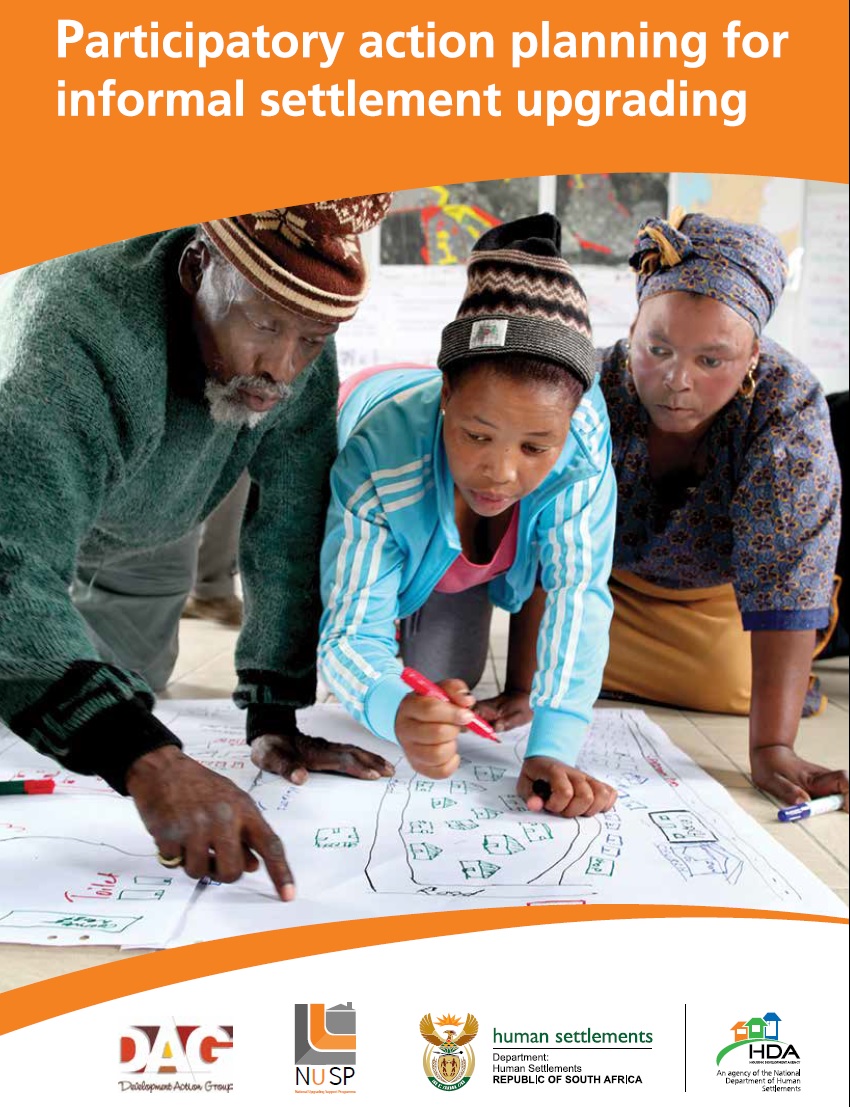Participatory Action Planning for Informal Settlement Upgrading

The viability of all informal settlement upgrading projects is largely determined by the extent to which the residents are involved in the participatory planning process. Local level upgrading projects offer government and other stakeholders a unique opportunity to explore and develop more democratic forms of cooperative governance in which citizens become active social agents in relevant and meaningful discussions that involve their present and future livelihoods and settlements. Healthy discussion, negotiation, trust-building exercises and cooperation are key aspects of a sustainable approach and methodology to underpin any informal settlement upgrading (ISU) process.
While every community has its own unique constraints and opportunities, participation has proven to be the main building block for building thriving neighbourhoods. This approach varies in each local context but, in all cases, emphasis needs to be placed on participatory processes rather than on a formalistic ticking of boxes that is not necessarily responsive to the conditions of a particular informal settlement. If people’s voices are heard and their advice heeded, they begin to feel an increased sense of ownership of their surroundings.
This in turn leads to increased understanding between residents and other key stakeholders, encouraging a more trusting and healthy relationship between, in this case, the City of Cape Town and local citizens, and can lead to the creation of safe, affordable and more vibrant formal settlements that can increase the standard of living for all - especially those most afflicted by and vulnerable to cycles of unrelenting and chronic poverty.
These Guidelines on Participatory Action Planning, published by the Housing Development Agency, are based on practice and lessons emerging from Development Action Group’s socio-technical support to the City of Cape Town in 2013 in Participatory Action Planning for several informal settlements. They are designed to support officials, communities and practitioners in the planning phase of an ISU. The intention is not to be prescriptive or to provide a detailed step-by-step process. Users are encouraged to review more comprehensive toolkits for guidelines on implementation and monitoring and evaluation project phases.
Abstract based on source.


Comments